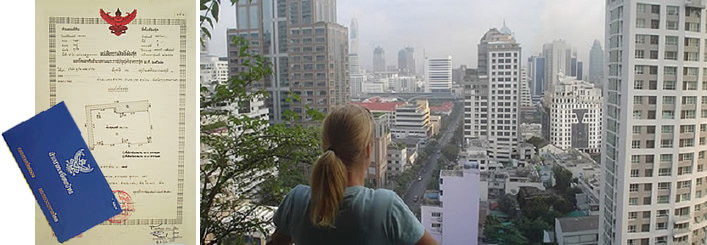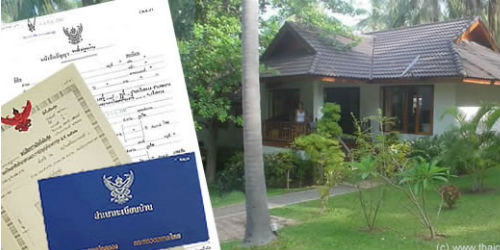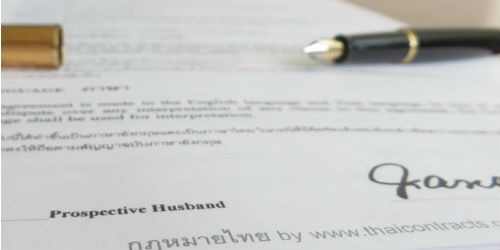Leasehold is merely a prepaid tenancy agreement
If you abelieve everything you are told and read you may think that with leasehold you will buy the equivalent of a freehold condo, but in fact you will primarily enter into a tenancy agreement and this has only disadvantages compared to freehold ownership of a condo unit
Drawbacks of an apartment lease compared to freehold ownership
A lease in Thailand is basically a tenancy agreement with a prepaid rent. The lessee does not obtain a form of title to the condo and the lessee can for example not independently sell the remaining term on his lease as an asset. It is only the owner who has the right to transfer the lease at the land office and accept a new tenant/ lessee.
A lease, as a personal tenancy, is terminated upon death of the tenant/ lessee (as confirmed by the Thailand Supreme Court). The lease must include a succession clause however this lease provision does not automatically fall under section 569 of the civil and commercial code and is not guaranteed.
A lease contract with a fixed and prepaid lease term can be terminated premature when the lessee does not comply with the conditions under which the property is leased. Tenant protection in Thailand is poor.
The lessee is only allowed to sublet if this is agreed in the lease agreement. If this subject is not mentioned in the lease agreement then sublet by the lessee is prohibited and sub rent in that case will be considered a breach of contract pursuant section 544 Civil and Commercial Code, and a valid reason for the landlord to terminate the lease agreement.
The lessee will generally not obtain any voting rights which are associated with ownership and the lessee has no say in the condominium joint owner meetings. Unless arranged differently voting rights remain with the owner of the unit.
Rent received by the landlord/ lessor or is subject to income tax under section 40 of the Revenue Code
The owner who rents out his apartment unit must pay a rental tax pursuant the Housing and Land Tax Act at a rate of 12.5% on the yearly lease price. This tax burden is almost always passed on to the tenant/ lessee in the lease agreement.
The lessee will in most cases become responsible in the lease agreement for all payments to the condominium reserve fund, monthly maintenance and management fees, but also for any special fees that must cover major repairs or upgrades of the building, without a right of refund when the lease runs out.
The conditions under which a unit is leased usually contain provisions by which the lessee becomes responsible to keep the leased apartment unit reasonably maintained and pays for all costs of repairs and maintenance of the unit (not the owner/ landlord) without a right of refund when the lease runs out.
The lease term cannot exceed 30 years. Any longer term is by law automatically reduced to 30 years pursuant section 540 civil and commercial code). A lease can be renewed, but Thai law does not in any way guarantee a right of renewal or extension of the lease after 30 years. The lease is by law automatically terminated after 30 years and the condo will revert back to the freehold owner (despite what a contract may say differently).
Note: only apartment buildings with a condominium license and registration with the land department as condominium offer freehold ownership and are governed by condominium laws. The only reason to enter into a long term lease agreement in such a building would be, despite the disadvantages, because the 49% foreign ownership quota in the condominium is full. Beware, other apartment buildings, without registration and licensing under condominium laws, do not offer freehold ownership but leases only.




